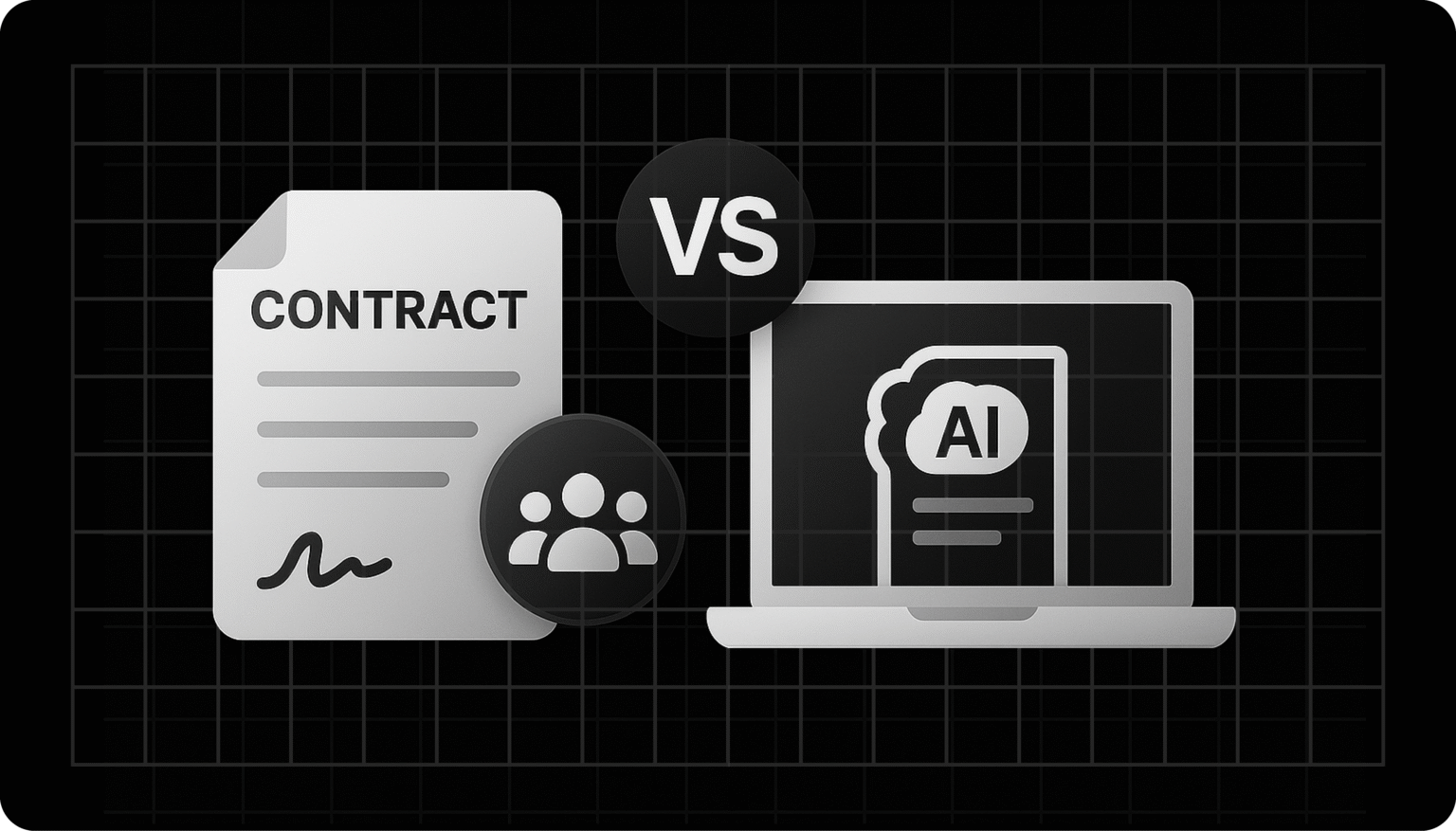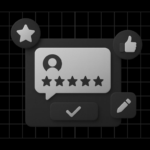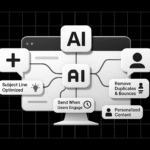An AI contract generator helps your business create legally structured contracts online in minutes without starting from scratch or relying on outdated templates.
In 2025, startups, freelancers, SaaS companies, and legal teams are turning to AI-powered contract generators to draft NDAs, employment contracts, service agreements, and marketing contracts faster and more accurately than ever before.
Many tools now offer free AI contract generators, while advanced platforms provide automation, clause logic, and built-in e-signatures.
Instead of manually editing documents and risking inconsistencies, AI contract generators use smart prompts, clause libraries, and conditional logic to create contracts that adapt to your specific needs.
Whether you’re looking for a free AI contract generator online or a scalable solution for growing teams, the right tool can reduce legal workload and turnaround time.
In this guide, we compare the best AI contract generators in 2025, breaking down free vs paid options, ideal use cases, and which tools are best for startups, legal teams, and sales-driven businesses so you can choose confidently.
💬Note: AI-generated contracts are not a substitute for legal advice. Always have important agreements reviewed by a qualified legal professional.
Best AI Contract Generators in 2025 (Side-by-Side Comparison)
Choosing the right AI contract generator depends on how you plan to use it, whether you need a free online contract creator, a sales-driven automation tool, or a branded contract generator for clients.
To make your decision easier, here’s a side-by-side comparison of the best AI contract generators in 2025, highlighting which tool is best for each, available free options, and core capabilities.
AI Contract Generator Comparison Table (2025)
| Tool | Best For | Free Plan | Contract Types Supported | E-Signatures | Ideal User |
| Microapp | No-code contract creation & branding | Free trial | NDAs, freelance, service, custom contracts | ✅ Built-in | Startups, creators, SaaS founders |
| Lawyaw | Legal teams & law firms | ❌ | Court-ready legal documents | ✅ | Attorneys, compliance teams |
| DocuSign Gen | Sales & enterprise contracts | ❌ | NDAs, SOWs, MSAs, sales contracts | ✅ | Sales-driven organizations |
| Ironclad | Complex legal workflows | ❌ | Enterprise-grade agreements | ✅ | Large legal departments |
| Juro | All-in-one contract management | Limited | Commercial contracts | ✅ | Growing teams & agencies |
How to Read This Comparison
Not all AI contract generators are built the same. Some focus on legal compliance, others on sales automation, while platforms like Microapp allow you to develop and own your own contract generator without writing code.
If you’re searching for a free AI contract generator, be sure to check the trial limitations and template access.
Free plans are often ideal for testing, but paid tools unlock advanced features such as dynamic clause logic, branding, and monetization.
For startups and creators, flexibility and speed matter most. For legal teams and enterprises, compliance, audit trails, and approval workflows are essential.
Quick Takeaways
- Best overall AI contract generator for creators & startups: Microapp
- Best AI legal contract generator for law firms: Lawyaw
- Best AI contract generator for sales teams: DocuSign Gen
- Best for complex legal approvals: Ironclad
- Best all-in-one contract platform: Juro
Best AI Contract Generator for Each Use Case
Not every business needs the same type of AI contract generator. Some teams need legally compliant templates, others need sales-driven automation, and some want to build a fully branded, self-service contract tool.
Here’s how the best AI contract generators in 2025 compare when matched to specific use cases.
Best AI Contract Generator for Startups & No-Code Founders
Microapp
Microapp is the best choice for startups, creators, and SaaS founders who want more than just a document generator.
Instead of producing one-off contracts, Microapp lets you build a fully branded AI contract generator that clients or users can access on demand.
With its no-code builder, you can design interactive contract flows, add AI-powered clause logic, and customize prompts to fit your industry — without writing a single line of code.
This makes Microapp especially valuable for founders building legal-tech tools, marketplaces, or subscription-based services.
Why it’s ideal for startups:
- Create self-service contract generators for users or clients
- Customize clauses dynamically based on user inputs
- Monetize contracts via subscriptions or pay-per-use
- Maintain branding and ownership
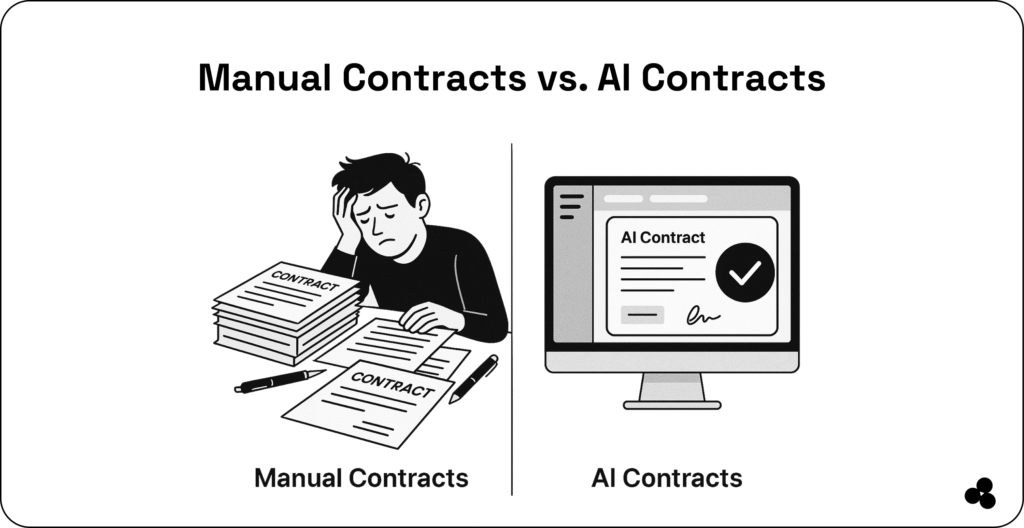
Best AI Contract Generator for Legal Teams
Lawyaw
Lawyaw is purpose-built for law firms and legal professionals who require court-compliant documents and structured clause libraries. Rather than focusing on AI experimentation, Lawyaw emphasizes accuracy, consistency, and compliance.
It excels at automating repetitive legal documents while maintaining jurisdiction-specific formatting and language standards, making it a reliable AI legal contract generator for regulated environments.
Why legal teams choose Lawyaw:
- Pre-built, court-ready legal templates
- Automated client data merging
- Compliance-focused workflows
- Secure document generation
👉 Check out these open house apps for real estate.
Best AI Contract Generator for Sales & Service Agreements
DocuSign Gen
DocuSign Gen is designed for organizations where contracts are tightly tied to the sales process. By connecting directly to CRMs, it automatically generates NDAs, SOWs, and service agreements using deal data.
This makes it one of the strongest options for teams searching for automated service agreement template generators for sales teams, especially at scale.
Why sales teams prefer DocuSign Gen:
- CRM-driven contract generation
- Dynamic clause logic based on deal details
- Built-in e-signatures and security
- Enterprise-grade compliance
Best AI Contract Generator for Complex Legal Workflows
Ironclad
Ironclad stands out for organizations managing multi-stage approvals, negotiations, and contract reviews.
Its AI-powered workflow engine supports collaboration, redlining, and audit trails — all within a centralized platform.
This makes Ironclad ideal for enterprises that require deep control over contract lifecycle management, rather than simple document generation.
Why Ironclad excels in complex environments:
- AI-assisted clause suggestions
- Workflow and approval automation
- Real-time collaboration and redlining
- Powerful audit and compliance tracking
Best All-in-One AI Contract Platform
Juro
Juro combines AI contract creation, collaboration, signing, storage, and analytics into a single interface.
Teams can create contracts directly in the browser, collaborate in real time, and track contract performance post-signature.
For growing teams that want simplicity without sacrificing automation, Juro offers a balanced solution.
Why teams choose Juro:
- In-browser editing and signing
- Integrated CRM and payment tools
- Contract analytics and reporting
- Self-service contract workflows
👉 Worthy Read: 7 Top Real Estate Listing Tools in 2025
Free AI Contract Generators: What You Can Use at No Cost
Searching for a free AI contract generator is one of the most common entry points for users exploring contract automation in 2025.
While many tools advertise free access, the reality is that most free plans come with limitations.
Understanding what’s actually available at no cost—and when you’ll need to upgrade—helps you choose the right solution without surprises.
👉 Learn the benefits of using AI in your content marketing as a startup
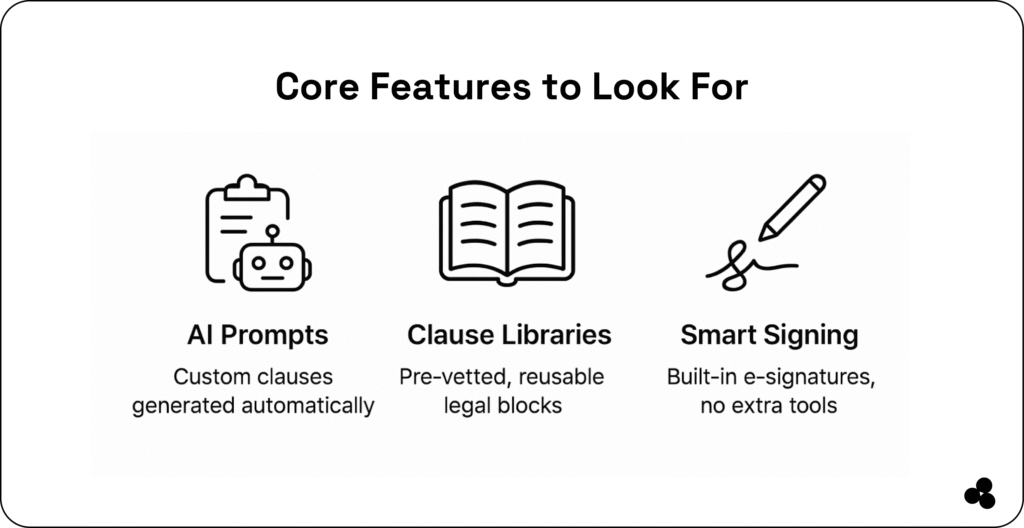
Are There Truly Free AI Contract Generators?
Some AI contract generators offer free trials or limited free plans that allow you to generate basic contracts online.
These options are ideal for testing the platform, creating one-off agreements, or validating whether AI-generated contracts fit your workflow.
However, free AI contract generators often:
- Restrict the number of documents you can create
- Limit access to advanced contract templates
- Exclude dynamic clause logic and automation
- Require upgrades for e-signatures or downloads
For ongoing business use, most teams eventually move to paid plans to unlock automation, branding, and compliance features.
Free vs Paid AI Contract Generators (Quick Comparison)
| Feature | Free AI Contract Generator | Paid AI Contract Generator |
|---|---|---|
| Contract creation | Basic | Advanced & automated |
| Template access | Limited | Full clause libraries |
| AI customization | Minimal | Dynamic AI prompts |
| E-signatures | Often unavailable | Included |
| Branding | ❌ | ✅ |
| Compliance controls | Limited | Advanced |
When a Free AI Contract Generator Is Enough
A free AI contract generator may be sufficient if you:
- Need a simple NDA or freelance contract
- Are you testing AI-generated agreements for the first time
- Only generate contracts occasionally
- Don’t require branding or automation
This makes free tools useful for individuals and small teams with low contract volume.
When You Should Upgrade to a Paid Tool
Paid AI contract generators become essential when you:
- Generate contracts regularly
- Need legally consistent clauses across documents
- Want automated service agreements for sales teams
- Require built-in e-signatures and audit trails
- Plan to offer contracts as a client-facing service
Platforms like Microapp allow you to move beyond usage and build a branded AI contract generator, giving you control, scalability, and monetization options.
👉 While here, check out these performance review software to cut bias and add clarity.
Popular AI Contract Types You Can Generate
Modern AI contract generators support a wide range of legal agreements across industries. Instead of relying on generic templates, these tools use clever prompts and clause logic to tailor contracts based on real inputs — reducing errors and saving time.
Below are the most commonly generated contract types in 2025, each aligned with high-intent search queries.
AI NDA Generator
Non-Disclosure Agreements are among the most frequently created contracts using AI. An AI NDA generator allows businesses to quickly define confidentiality scope, duration, jurisdiction, and permitted disclosures.
This is especially useful for startups, agencies, and founders who regularly share sensitive information with partners, contractors, or investors.
Common use cases:
- Investor discussions
- Vendor onboarding
- Product or IP protection
AI Employment Contract Generator
An AI employment contract generator helps companies draft offer letters and employment agreements that align with role type, compensation structure, and jurisdiction.
Instead of manually editing documents for each hire, AI tools dynamically adjust clauses such as probation periods, termination terms, and benefits.
Common use cases:
- Hiring full-time employees
- Remote or international roles
- Contractor-to-employee transitions
Marketing Contract Generator (AI)
A marketing contract generator powered by AI is ideal for agencies and freelancers working on retainers, campaigns, or performance-based agreements.
These tools can automatically include the scope of work, deliverables, timelines, and payment milestones based on project inputs — reducing misunderstandings and disputes.
Common use cases:
- Agency retainer agreements
- Influencer partnerships
- Campaign-based marketing services
AI Service Agreement Generator
Service agreements are critical for sales teams, consultants, and SaaS providers.
An AI service agreement generator lets you create customized contracts by automatically adjusting pricing models, service levels, and renewal terms.
This makes it especially valuable for teams searching for automated service agreement template generators for sales teams.
Common use cases:
- Consulting and professional services
- SaaS onboarding agreements
- Ongoing support and maintenance contracts
Additional AI-Generated Contract Types
Many AI contract generators also support:
- Freelance agreements
- Partnership contracts
- Licensing agreements
- Subscription and recurring service contracts
As AI tools continue to evolve, the range of supported contract types expands — making contract automation accessible to more industries.
👉 Check out the difference between AI and traditional writing.
Are AI-Generated Contracts Legal and Enforceable?
A common concern when using an AI contract generator is whether the contracts it generates are legally valid. The short answer is: yes, they can be lawfully enforceable, but only when used correctly.
AI contract generators do not replace the law. Instead, they assist in drafting agreements by applying structured language, standardized clauses, and logical conditions based on user inputs.
The enforceability of a contract still depends on traditional legal requirements.
What Makes an AI-Generated Contract Legally Valid?
An AI-generated contract is generally enforceable if it meets the same criteria as any traditional agreement:
- Offer and acceptance between all parties
- Clear intent to create a binding agreement
- Consideration (something of value exchanged)
- Lawful purpose
- Proper execution, including signatures where required
AI accelerates the drafting process — it does not override these legal fundamentals.
When AI-Generated Contracts Can Be Risky
While AI tools improve speed and consistency, risks can arise if contracts are used without proper oversight. Potential issues include:
- Jurisdiction-specific legal requirements are not being reviewed
- Over-reliance on generic templates
- Missing regulatory or industry-specific clauses
- Inaccurate inputs leading to incorrect terms
For high-value or complex agreements, legal review remains essential.
Best Practices for Using an AI Legal Contract Generator
To use an AI legal contract generator safely and effectively:
- Always review generated contracts before signing
- Customize clauses to match your jurisdiction and industry
- Use AI-generated contracts as a foundation, not a final substitute for legal advice
- Enable audit trails and e-signatures to support enforceability
Platforms that support version tracking and clause libraries help reduce risk and maintain consistency.
👉 While here, check out the best real estate agent tools in 2025.
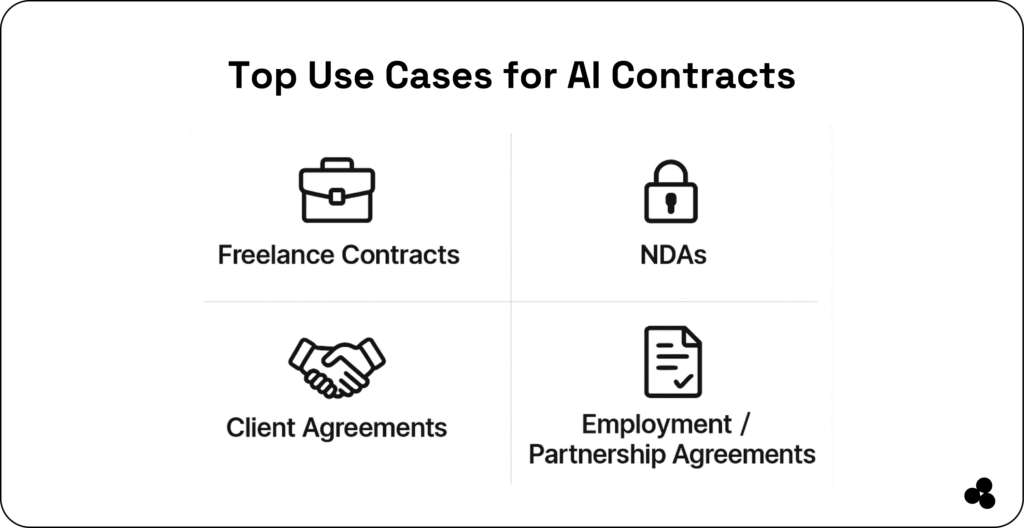
AI Contract Generator vs Manual Templates (2025 Reality Check)
For years, businesses relied on static contract templates copied, edited, and reused across deals.
In 2025, that approach is no longer sustainable. As contracts become more frequent and more complex, manual drafting introduces unnecessary risk, delays, and inconsistency.
An AI contract generator offers a more innovative alternative by automating structure, language, and logic — while maintaining flexibility.
Manual Contract Templates: The Hidden Costs
Manual templates may seem simple, but they often lead to:
- Inconsistent clauses across contracts
- Higher risk of outdated or non-compliant language
- Time-consuming revisions and approvals
- Increased legal exposure due to human error
As contract volume grows, these inefficiencies multiply.
AI Contract Generators: How They Change the Game
AI-powered contract generators streamline the entire drafting process by:
- Automatically inserting correct clauses based on user inputs
- Maintaining consistency across all agreements
- Reducing turnaround time from hours to minutes
- Supporting built-in e-signatures and audit trails
This approach is especially valuable for startups, agencies, and sales teams that need speed without sacrificing accuracy.
AI vs Manual Contracts: Quick Comparison
| Aspect | Manual Templates | AI Contract Generator |
|---|---|---|
| Drafting speed | Slow | Near-instant |
| Consistency | Low | High |
| Error risk | High | Reduced |
| Scalability | Poor | Excellent |
| Automation | ❌ | ✅ |
| E-signatures | External tools | Built-in |
Why Businesses Are Switching in 2025
The shift toward AI-generated contracts is driven by:
- Increased contract volume
- Remote and global teams
- Pressure to close deals faster
- Growing compliance requirements
AI contract generators provide the speed, structure, and reliability modern businesses need.
👉 Check out these pros and cons of AI-generated content
How to Build Your Own AI Contract Generator (No Code)
Building your own AI contract generator is easier than ever with no-code platforms like Microapp. Here’s a step-by-step roadmap simplified into a table for quick reference:
| Step | Action | Key Notes / Tips |
|---|---|---|
| 1 | Choose Contract Types & Audience | Define which contracts to automate (NDAs, employment, service agreements) and who will use them (startups, freelancers, agencies). |
| 2 | Create Modular Templates & Clauses | Break contracts into reusable clauses (payment, confidentiality, termination, jurisdiction) for dynamic insertion. |
| 3 | Design UX with No-Code Tools | Build interactive forms, add conditional logic, and customize branding to create a guided user experience. |
| 4 | Add AI Prompts & Smart Automation | Use AI to suggest clauses, adjust tone, and reduce repetitive edits for more accurate, adaptable contracts. |
| 5 | Enable E-Signatures & Storage | Integrate built-in e-signatures, version tracking, and secure storage to streamline execution. |
| 6 | Test, Launch & Monetize | Validate with real users, then monetize via subscriptions, pay-per-contract, or tiered access plans. |
Tip: Start simple, then expand templates and automation based on user feedback to maintain high usability and value.
Who Should Use an AI Contract Generator?
AI contract generators are versatile, but different audiences use them in distinct ways. This table helps users quickly identify if these tools fit their needs:
| User Type | Key Benefits | Recommended Focus |
|---|---|---|
| Startups & Founders | Quickly generate NDAs, service agreements, and client contracts without legal overhead | Build branded, self-service contract generators |
| Freelancers & Creators | Automate repetitive freelance contracts and NDAs, reduce errors | Use templates for fast client onboarding |
| Legal Teams & Law Firms | Maintain compliance, automate repetitive documents, and ensure court-ready formatting. | Leverage clause libraries and approval workflows |
| Sales & Account Teams | Generate service agreements, NDAs, and SOWs directly from CRM data | Focus on automation and e-signatures to speed deal closures |
| Agencies & SaaS Companies | Streamline client contracts, employment agreements, and subscription contracts. | Combine collaboration, analytics, and AI clause suggestions |
Tip: Even if you fit multiple categories, prioritize your most frequent contract needs first, then expand your AI generator templates over time.
Automate, Scale & Stay Legally Compliant
AI contract tools are no longer just nice-to-haves; they’re essential for modern legal workflows.
Whether you’re a developer, creator, or legal-tech entrepreneur, the opportunity is clear: automate your contracts, reduce risks, and unlock new revenue streams.
With these innovative tools, you can save time, minimize errors, and deliver a seamless, branded experience your clients will love.
Ready to take control of your contracts and scale smarter? Build a branded AI contract generator tool with Microapp, zero-code, full power. Try it free today.
